VET APPROVED

The information is current and up-to-date in accordance with the latest veterinarian research.
Learn more »In the wild, it’s not unusual for birds to eat the eggs of other species. Since eggs are packed full of protein and other nutrients, it makes sense that parrots would occasionally snack on eggs should they get the opportunity. But what about pet birds? Is it safe to feed an egg to your parrot?
In general, eggs are completely safe to feed to parrots. They have many health benefits, though, of course, moderation is essential, and there are a few factors to be cautious of. In this article, we’ll examine the health benefits of feeding eggs to your parrot and the issues to watch out for.

Potential Health Benefits of Feeding Eggs to Parrots
In the wild, birds and other mammals eat eggs whenever they can, and as pets, parrots can eat eggs occasionally, too. There are plenty of benefits of giving eggs to parrots.
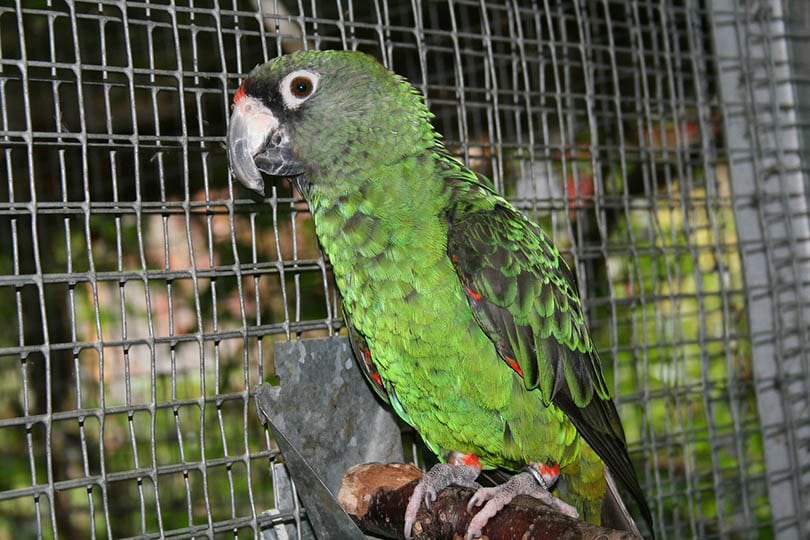
- Protein: Protein is a vital nutrient for parrots, even those that eat a largely fruit-based diet, because it helps build and maintain healthy muscles and blood, assists with feather and nail health, and helps with immune functions and stress reduction. Your parrot should have 10%–20% protein as a part of their daily diet.
- Vitamin A: Vitamin A is an essential nutrient for parrots, and a deficiency can lead to weakened beaks and nails and feather loss. Vitamin A helps your parrot with eye health, hearing, and bone growth.
- Vitamin D: Eggs are packed with vitamin D, and since vitamin D3 is commonly deficient in parrots, eggs can provide sufficient amounts. Vitamin D helps your parrot’s immune system and bone, muscle, and heart health.
- Calcium: Calcium is vital in parrots’ diets, especially for breeding females’ eggs and the health of their chicks. Even in non-breeding birds, calcium helps regulate their heartbeat and keeps their bones, claws, and beaks healthy.
- Choline: Egg yolks are among the best sources of choline, a nutrient that aids brain and nervous system function in parrots.
Eggs are inexpensive and easy to find, and your parrot can eat an entire egg—whites, shell, and yolk—so they are healthy snacks for your feathered friend.
Potential Risks of Feeding Eggs to Parrots
Eggs are high in saturated fat and cholesterol, so they should only be given to your parrot occasionally to avoid issues with obesity. As long as you practice moderation and give your parrots safe, pasteurized eggs, there are no real dangers in feeding them to your bird. Parrots can safely consume eggs from various species, including chicken, duck, and quail eggs.
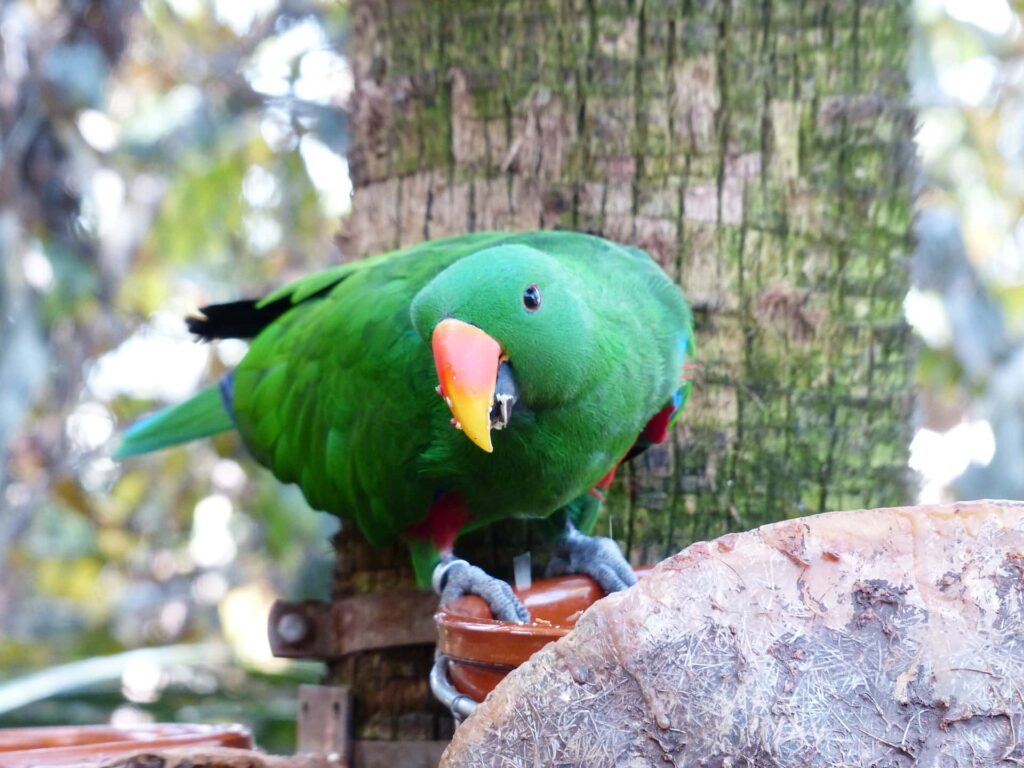
How Often Can Parrots Eat Eggs?
At first, an egg once a week is plenty for your parrot, depending on their size. Once they are accustomed to it, you can give them eggs as treats once or twice a week at most. The healthiest way to serve eggs to your pet parrot is to give them raw pasteurized eggs that are crushed and mixed into their pellets or seed mix. All parts of the egg (including the shell) are safe for consumption.
Parrots usually enjoy raw eggs, and they’ll have more access to the nutrients. You can also crush up the shell into their food for added calcium. Fried eggs are not recommended due to the oils used in cooking, but most parrots love scrambled eggs! Boiled eggs are also great; keep the shell on because your parrot will love nibbling away at the shell and the soft insides. Feeding boiled eggs to your parrot will get messy, though!
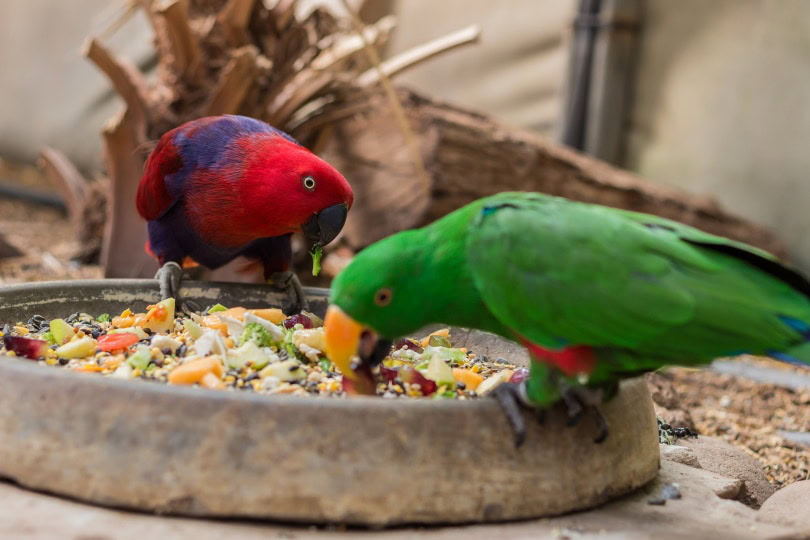

Final Thoughts
Parrots can eat eggs, and they have a handful of nutrients and health benefits, including calcium, protein, and vitamin A. Eggs are also inexpensive and readily available and can be fed raw or cooked in your parrot’s favorite way. Of course, like any food, moderation is key. One or two eggs per week are ideal for your feathered friend.
You May Also Like:
Featured Image Credit: Piqsels
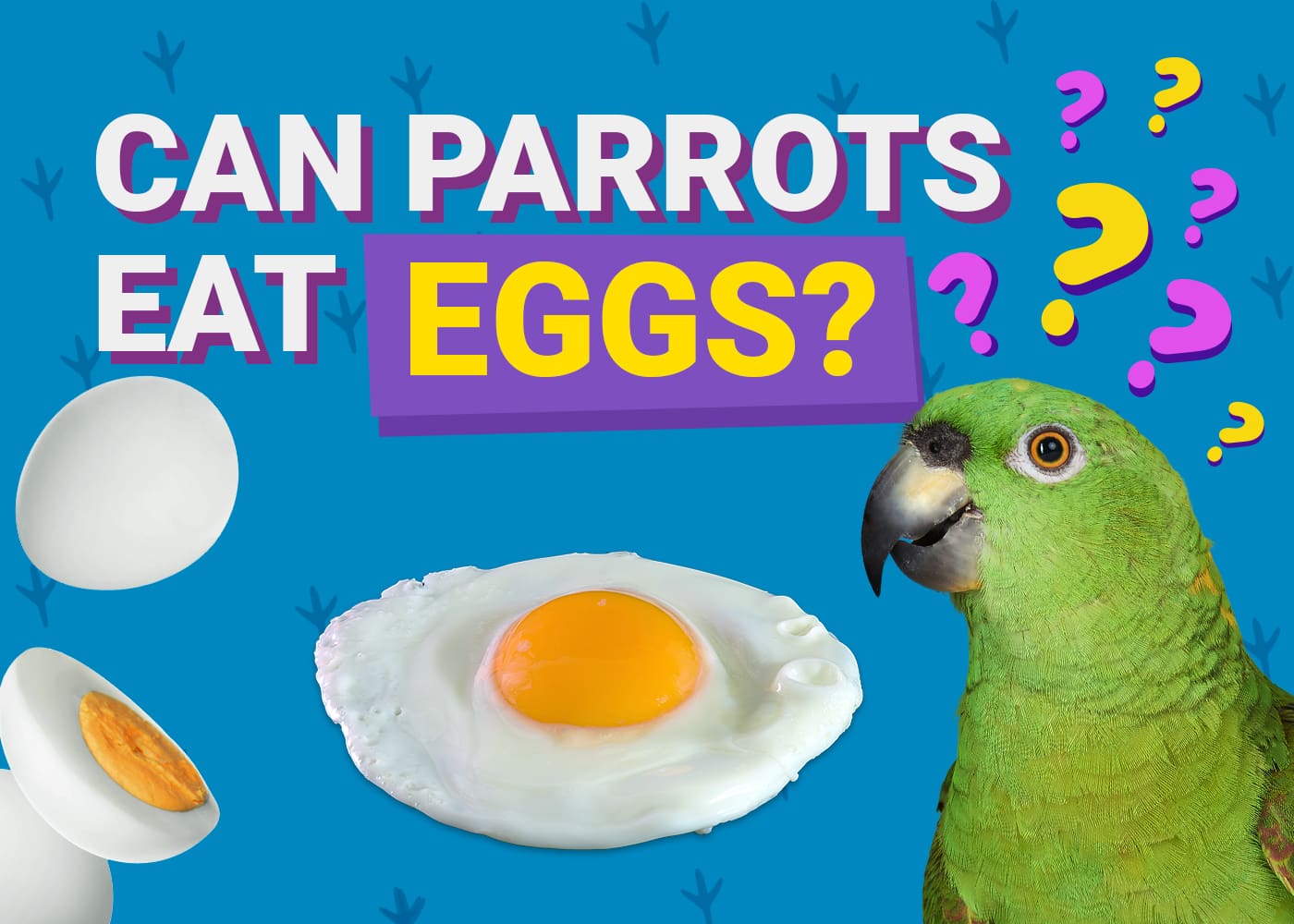





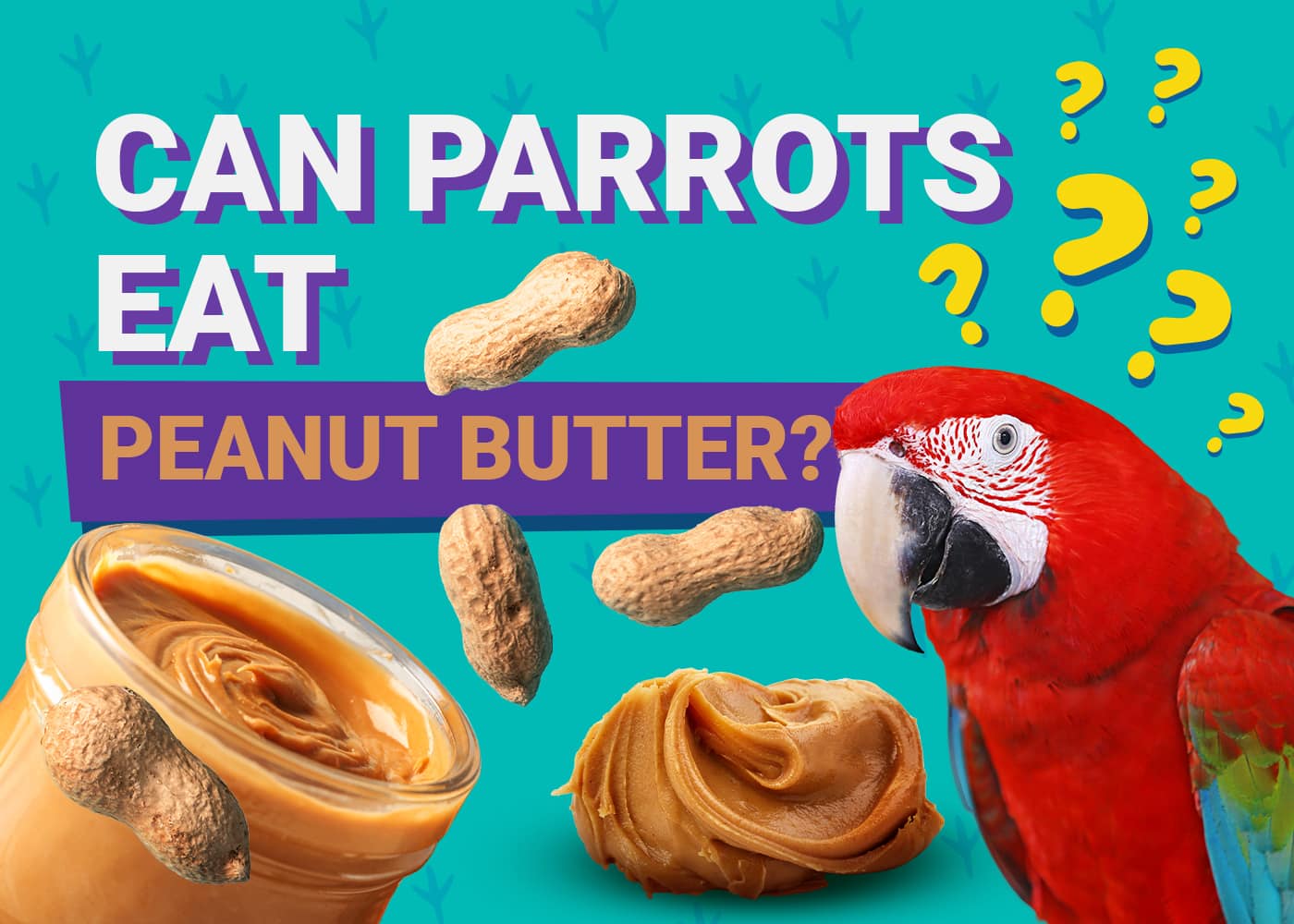
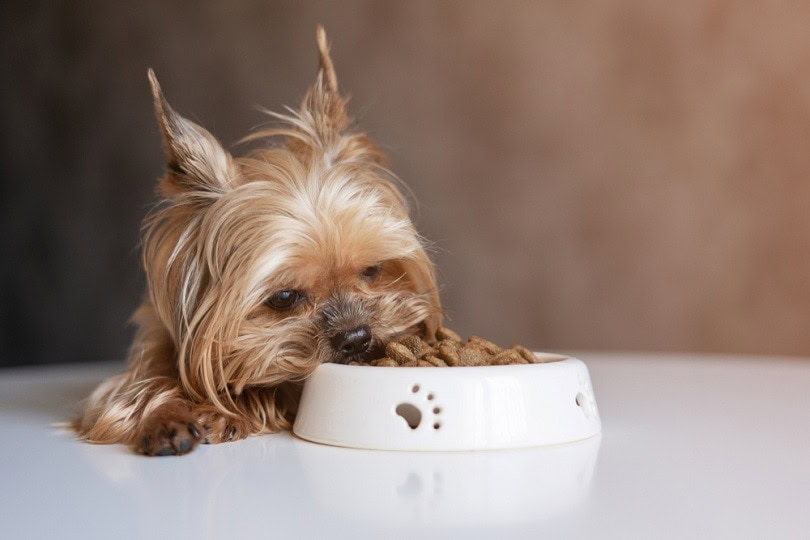



2 Responses
Your information was very helpful. I have a Quaker and I chop one hard egg and give him about 1-1/2 tsp every day. Am I over doing it.?
Hello Phyllis,
thank you for your question. When it comes to feeding your Quaker eggs, the dosage depends on the bird’s size. If your Quaker is fully grown, than feeding them 1-1/2 tsp is alright. For not fully grown Quaker, we would suggest giving smaller portions. However, more importantly we would suggest lowering the feeding frequency. Eggs should be fed only in moderation – no more than twice a week.
If you would like to get some more feeding and care advice, we would like to suggest booking an online consultation with one of our vets at http://www.PangoVet.com. They will be happy to give you some great tips.